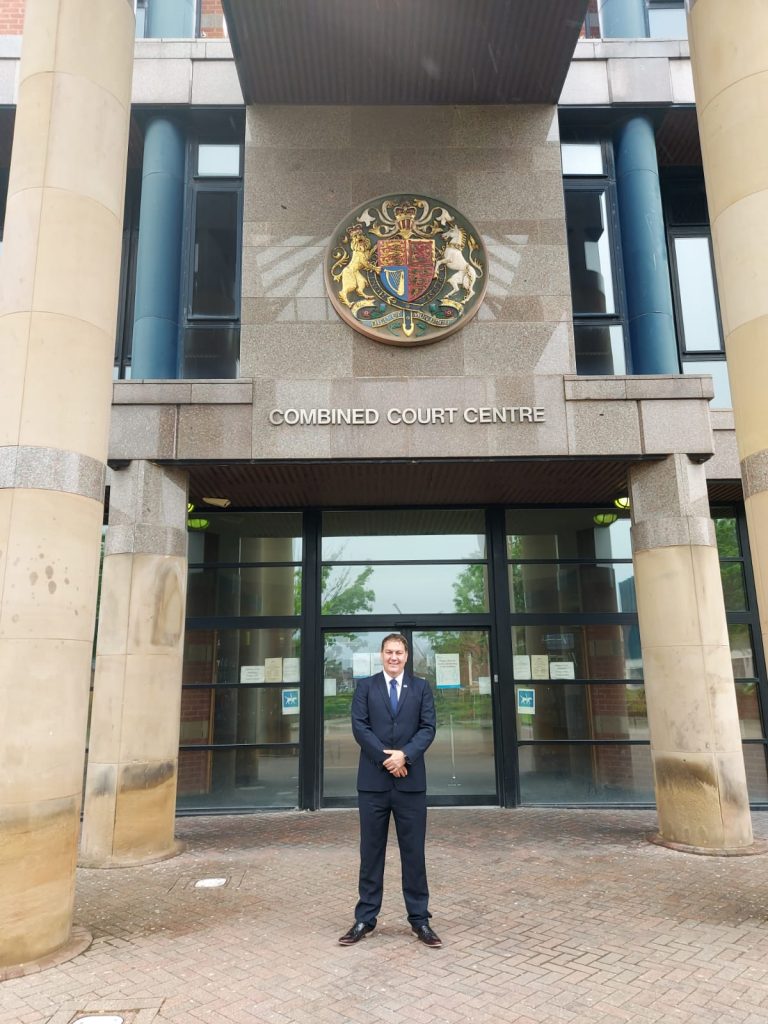Criminals serving community orders for low level offences will be closely monitored by judges as part of a new pilot in Cleveland.
Offenders will be told to clean up their act – or face time behind bars!
Teesside is one of just three pilots across England to trial the new Intensive Supervision Courts.
The courts form part of a tough new community sentencing approach to tackle the root causes of offenders’ behaviour. They aim to help them change and ultimately to cut re-offending.
The pilot was launched in Liverpool and Teesside this week. A third pilot scheme focusses on female offenders and runs at Birmingham Magistrates’ Court.
During sentencing, the judge will order an offender to attend regular review meetings.
Meetings check that offenders are abiding by the requirements of their community sentence.
Offenders will also have access to specialist drug and alcohol treatment to help them tackle the substance misuse, which could be a factor in driving their criminality.
At the same time, they will receive intensive supervision from the Probation Service. This could include frequent and random drug testing. Offenders on the pilot will also have support accessing education, employment and housing.
Failure to engage, continued substance misuse or refusal to attend follow-on meetings with the judge could mean an offender faces increased drug testing or is sent to prison.
Use of Privileges
Judges will also use privileges – such as relaxing conditions – to recognise good progress.
Cleveland Police and Crime Commissioner, Steve Turner said: “I’m pleased that Teesside has been selected for this pilot programme. It takes a new approach to tackling the harm caused by drug-related crime.
“By providing intensive support for people with substance misuse – but with clear consequences for a failure to comply – I’m confident they will turn their backs on crime and return as contributing members of society.”
Lord Chancellor and Justice Secretary, Alex Chalk MP KC, said: “Clamping down on the root causes of addiction will help us combat the scourge of drug and alcohol-fuelled crime which costs the taxpayer £22 billion a year.
“This tough new approach is a tried and tested model that we know cuts crime and makes our communities safer.”
The pilot forms part of the government’s 10-year Drug Strategy. The Government’s Police, Crime, Sentencing and Courts (PCSC) Act 2022, made the move possible. A statutory instrument was laid in Parliament last month to launch the 18-month pilot.

Reductions in re-offending
The pilot is based on evidence that this kind of approach can reduce re-offending. Similar schemes have already launched internationally and trialed in the UK. This has included successful initiatives in the West Midlands.
Studies show that getting offenders to confront their addictions through specialist support helps drive down the chances of them committing further crimes.
A US study on the long-term effect of a similar problem-solving approach saw 25 per cent fewer drug charges over a 15-year period.
Phil Bowen, Director for the Centre of Justice Innovation, said: “These pilot courts offer a real opportunity to provide an intense, alternative sentence to custody for people whose offending is linked to substance use and other complex needs.
“The evidence suggests that, by combining wraparound supervision with regular judicial oversight which holds people and services to account, we can make a material difference to offending.
“These pilots allow us to test the effectiveness of these approaches in order to inform decisions on any potential wider roll-out.”
